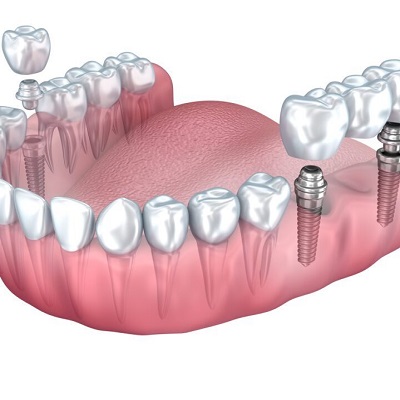
Dental implants are a game-changer in modern dentistry, offering a permanent and natural-looking solution for missing teeth. But many patients ask, “Can implants get cavities?” The short answer is no — but that doesn’t mean they’re completely maintenance-free. If you’re considering or already have a dental implant in Islamabad, it’s important to understand the relationship between implants and cavities, and why maintaining your oral hygiene is still critical.
What Is a Dental Implant?
A dental implant is a titanium post surgically placed into the jawbone, acting as a replacement for a missing tooth root. Once it heals and integrates with the bone, a dental crown, bridge, or denture is attached to restore function and appearance. Implants are designed to be strong, stable, and durable — and unlike natural teeth, they’re made from materials that don’t decay.
Can Dental Implants Get Cavities?
The straightforward answer is no, dental implants themselves cannot get cavities. That’s because they are made from titanium (for the post) and porcelain or zirconia (for the crown) — materials that do not contain organic matter and are not vulnerable to bacterial decay the way natural enamel is.
However, while the implant can’t get a cavity, the surrounding gum tissue and bone can still be at risk of infection or inflammation. Conditions like peri-implantitis, which is similar to gum disease, can compromise the health and longevity of your implant.
What Is Peri-Implantitis?
Peri-implantitis is an inflammatory condition affecting the gum and bone around a dental implant. It’s usually caused by plaque buildup and poor oral hygiene. Though it doesn’t create cavities, it can lead to bone loss, gum recession, and ultimately implant failure if not treated promptly.
Common signs of peri-implantitis include:
-
Swelling or redness of the gums.
-
Bleeding when brushing.
-
Discomfort or pain near the implant.
-
Bad breath or taste.
-
Loosening of the implant.
If you notice any of these symptoms, it’s important to consult your dentist in Islamabad immediately for evaluation and treatment.
Why Oral Hygiene Still Matters:
Even though your implant won’t decay like a natural tooth, bacteria can still build up around it, just like on natural teeth. This can irritate the gums and lead to infection. Good oral hygiene helps prevent this, just as it prevents cavities in natural teeth.
Here’s how to care for your dental implants:
-
Brush twice a day with a soft-bristled toothbrush.
-
Use a water flosser or interdental brushes to clean around the implant.
-
Avoid sugary snacks and acidic drinks that promote plaque.
-
Visit your dentist regularly for cleanings and check-ups.
Are Implants a Low-Maintenance Option?
Yes and no. Dental implants are more durable and resistant to decay than natural teeth, but that doesn’t mean they’re no-maintenance. You still need to care for them as if they were natural teeth — or even better. Neglecting oral hygiene can lead to gum infections and bone loss, which are the leading causes of implant failure.
For those living in Islamabad, maintaining regular visits with your dental implant specialist can ensure early detection of any issues, keeping your smile healthy and functional.
Dental Implant vs. Natural Tooth: A Quick Comparison:
| Feature | Natural Tooth | Dental Implant |
|---|---|---|
| Can get cavities | Yes | No |
| Susceptible to gum disease | Yes | Yes |
| Made of | Enamel, Dentin | Titanium, Porcelain/Zirconia |
| Requires regular cleaning | Yes | Yes |
| Lifespan | Varies | 15–25 years or more |
Final Thoughts:
While dental implants can’t get cavities, they are not immune to other oral health issues. The supporting gums and bone still need care to avoid infections like peri-implantitis. The key to preserving your dental implant — whether it’s a single tooth or a full-mouth restoration — lies in maintaining excellent oral hygiene and scheduling regular dental check-ups.
If you’re planning to get a dental implant in Islamabad, choose a qualified dental professional who emphasizes not just placement, but also long-term care. With proper maintenance, your implant can last a lifetime — free of cavities and full of smiles.